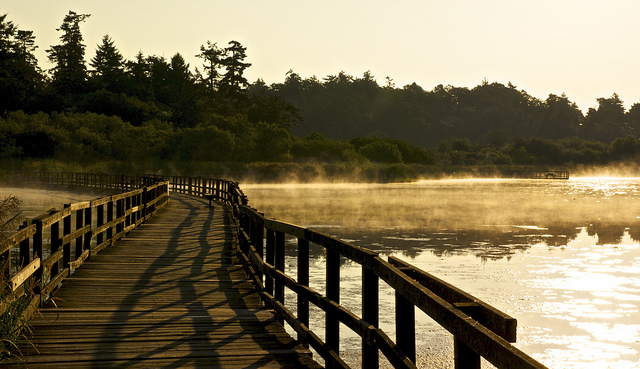
Always get an energy boost after your after dinner dip? Or are you that kind of person that wakes up before the alarm? Big chance you are either one of those people, and an even bigger chance that you are sometimes jealous of the other group. It’s nice to not turn into a boring tired person before the party begins and to be able to sleep until you really have to get up. Or is it nicer to don’t have trouble waking up and be energetic in the morning?
Is there really a difference?
Research shows there are indeed morning and evening types, but you have more persons falling somewhere in between. In a study of Watson et al. over 30 percent of the 2,945 participants were rated as morning-types, while around 17 percent reported being evening types. Because the participants in this study were twins, their sleeping patterns gave insight into genetic influences. The researchers analyzed the differences and found that genetics in fact accounted for 37 percent of the variance in diurnal preference.
The genetic influences can be seen in the bodily states people switch to in shorter or longer cycles. You normally wake up when your body temperature rises and the levels of sleep hormone melatonin lower. Conversely you’ll fall asleep when your body temperature drops and your level of melatonin rises, going hand in hand with increasing fatigue and falling alertness. Of course you can also be tricked into these last subjective states by boredom, describe researchers Waterhouse and colleagues. But they also show that genetic factors play an important role in the timing of these bodily states.
Whether you are a morning-person or an evening-person also depends a little on demographic factors. Women are more often rated as morning types, for example. And there also seems to be a link with age. Getting older can make you more of a morning person, although the mechanisms behind this are still unknown.
What’s better
Being a morning person overall seems to be the preferable sleep habit, is the idea you get when reading a study from Voinescu. He doesn’t state it that boldly, but he sums up some alarming findings. He mentions studies linking the tendency toward being an evening-person to depression, anxiety, schizophrenia, bipolar disorder and overall experiencing qualitatively and quantively less sleep. The twin study discussed above also had some bad news for evening persons. Genetic propensities towards diurnal eveningness were significantly associated with increased alcohol quantity and increased binge drinking (more than six drinks per occasion).
Then there are also some personality differences. Morning persons appeared conscientious, trustworthy and emotionally stable, while late nighters were emotionally unstable and had difficult social and familial relations. Morning persons also coped better with starting school times and performed better.
But there are some benefits of being an evening person. Evening persons tend to be more creative ánd intelligent. And if you have a partner that is also a nocturnal animal, you can be happy to ‘match’ with him. If you mismatch with your partner in these sleeping-habits, you’ll have less marital adjustment, more marital conflict, less time spent in serious conversation, less time spent in shared activities and less frequent sexual intercourse than matched couples, sums up a study of Larson et al.
Still want to become a morning person? Here’s a video with some tips:
References:
Watson NF, Buchwald D, & Harden KP (2013). A twin study of genetic influences on diurnal preference and risk for alcohol use outcomes. Journal of clinical sleep medicine : JCSM : official publication of the American Academy of Sleep Medicine, 9 (12), 1333-9 PMID: 24340296
Jeffry H. Larson,D. Russell Crane, Craig W. Smith (2007). MORNING AND NIGHT COUPLES: THE EFFECT OF WAKE AND SLEEP PATTERNS ON MARITAL ADJUSTMENT Journal of Marital and Family Therapy DOI: 10.1111/j.1752-0606.1991.tb00864.x
Jim Waterhouse, Yumi Fukuda and Takeshi Morita (2012). Daily rhythms of the sleep-wake cycle Journal of Physiological Anthropology DOI: 10.1186/1880-6805-31-5
Bogdan I. Voinescu (2009). Clock genes, chronotypes and diseases Human & Veterinary Medicine International Journal of the Bioflux Society
Photo: cc
Origineel gepubliceerd op United Academics